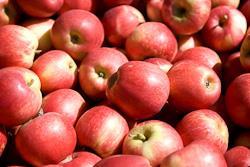
New Zealand’s rising trend in organic horticulture has definitely been earning points with consumers, and it has recently been awarded the scientific tick of approval as well.
Organic kiwifruit and apple production in New Zealand’s Bay of Plenty and Hawke’s Bay were the PhD thesis focus of Massey University researcher Girija Page.
Ms Page’s research developed a framework to assess the sustainability of organic fruit growing, reported TVNZ.
“New Zealand has a reputation for producing export goods that are thought to have less impact on the environment,” Ms Page said.
Efficient use of energy and non-degradation of the environment were the two criteria for her analysis.
The degradation element looked at changes in soil carbon level, carbon dioxide ratio, nutrient balances and leaching of nitrogen from the soil, according to the TVNZ report.
“The organic orchard systems were sustainable in terms of energy use and most of the environmental impacts they had on the soil, water and atmosphere,” she found.
“In fact, they were a carbon sink, so they could potentially trade carbon credits under the Kyoto Protocol.”
More research was needed to confirm her findings, Ms Page said.
Certified organic apple orchards account for 9 per cent of New Zealand’s planted area, and orchards in the process of organic conversion account for a further 2 per cent.
Pipfruit New Zealand’s Apple Futures initiative, a low chemical use, low residue programme, accounts for 51 per cent of planted area.
Organic kiwifruit accounts for about 3 per cent of the crop handled by national marketing board Zespri.



